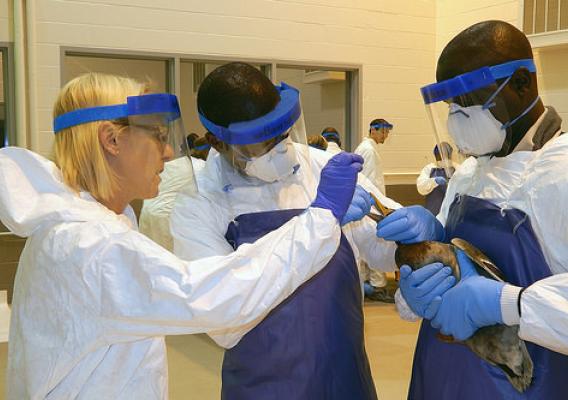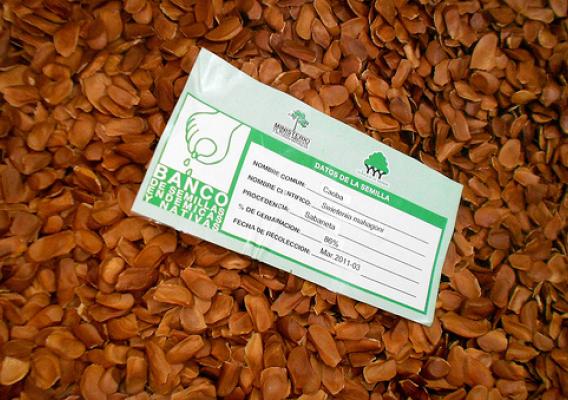Protecting agriculture is nothing new for USDA’s Animal and Plant Health Inspection Service (APHIS), who is on the job 24/7 keeping livestock safe from animal disease. APHIS is sharing that expertise internationally to help countries protect livestock and threatened and endangered species from diseases like brucellosis, tuberculosis, avian influenza, bluetongue and rabies. APHIS, with help from the Foreign Agricultural Service (FAS), held a new training course specifically focused on wildlife disease issues. APHIS recently hosted wildlife disease specialists from all over the world, including Cambodia, Kenya, Mexico, Tanzania, Uganda, and Vietnam.
All of APHIS’ capacity building programs are designed to identify and reduce agricultural pest and disease threats while these threats are still outside of U.S. borders. Capacity building includes training and technology transfer to assist foreign partners in building their animal and plant health infrastructures. This capability, in turn, helps to reduce the chances that undetected agricultural threats will find pathways into the United States.









